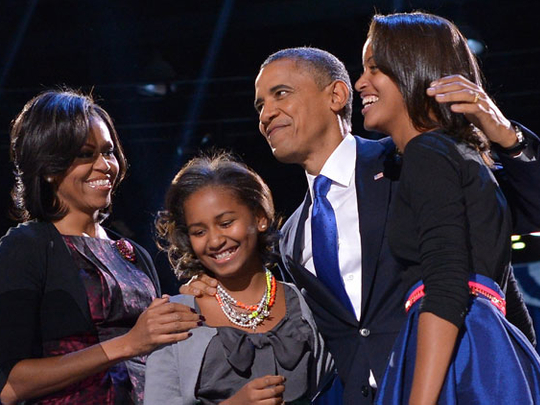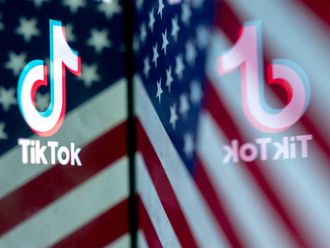
Washington: As President Barack Obama turns his attention once again to filling out a Cabinet and writing an inaugural address, this much is clear: He should not expect to bask in a surge of national unity or to witness a crowd of millions overrun the Mall just to say they were there.
That brief moment after the election four years ago, when many Americans thought Obama’s election would presage a new, less fractious political era, now seems very much a thing of the past. The generational shift Obama once embodied is, in fact, well under way, but it will not change Washington as quickly — or as harmoniously — as a lot of voters once hoped.
At this time in 2008, even as the global economy veered toward collapse, optimism about Washington ran surprisingly high. In polling by the Pew Research Center in November 2008, fully half the respondents thought the two parties would cooperate more in the coming year, versus only 36 per cent who thought the climate would grow more adversarial. As Obama prepared to take the oath, his approval rating touched a remarkable 70 per cent in some polling — a reflection of good will across the political spectrum.
More than anything else, Obama’s election seemed to signal the closing of one generational chapter in US politics — the cultural and ideological divide that grew out of the ‘60s and came to poison the Clinton-Bush years — and the opening of another. The country’s first black president, and its first president to reach adulthood after the Vietnam War and Watergate, Obama seemed like a digital-age leader who could at last dislodge the stalemate between those who clung to the government of the Great Society, on the one hand, and those who disdained the very idea of government, on the other.
“On this day, we come to proclaim an end to the petty grievances and false promises, the recriminations and worn-out dogmas that for far too long have strangled our politics,” Obama vowed in his inaugural address. He said the central question was “not whether our government is too big or too small but whether it works.”
This time around, the economic picture looks, if not exactly vibrant, then considerably more promising. And yet attitudes about Washington have never been darker or more polarised. According to Pew, partisanship is now at a record high and trust in government at a record low. (Only 1 in 5 voters in a poll last October said government could be trusted to do what is right most or all of the time — a 10-point drop since 2007.)
Far from closing the door on the leadership of the ‘60s generation, Obama’s presidency seems to have brought it back in full force. The Clintons, who once seemed banished to the wilds of Westchester County, are once again the most powerful family in Democratic politics, with talk of another Clinton presidency already rife in Washington.
Another Bush — George W.’s brother Jeb — is likely to be a big player in the Republican Party’s future. And the most powerful grass-roots force in America, the tea party, derives its energy mostly from the same older, white voters who once vilified Bill Clinton.
In other words, the sun-filled era of “hope” and “change” looks an awful lot like the long boomer-led twilight that preceded it.
There are, of course, plenty of explanations for why Obama’s election did not usher in a less contentious political moment. Republicans say he squandered his opportunity to remake the political climate by adopting a traditionally liberal agenda. They point to his first big initiative, the stimulus package worth more than $700 billion, and the health care law that represented an expansion of government rivalling programmes from the 1960s.
Democrats, meanwhile, point out that Republicans seem to have made a conscious decision, beginning with the stimulus, to oppose anything the president put forward, dooming any chance of renewed cooperation between the parties. Obama never found a generational counterpart among conservatives in Congress like Paul D. Ryan or Eric Cantor; instead, there was a mutual animosity.
But the greater truth may be that this is simply how generational and cultural change really comes to Washington — not in the flash of one man’s election, but gradually and tumultuously, with moments in which we lurch forward interrupted by stretches that drag us back.
The best analogue may be the administration of President John F. Kennedy, which began in 1961 much as Obama’s did in 2009 — with an expectation that “the torch had passed,” as Kennedy put it. It did not stay lit for long. Kennedy’s ambitious legislative agenda stalled in congressional committees run by the elders in his own party. The younger liberals who had supported him, meanwhile, quickly rebelled against the tepid pace of change.
“Even when you elect someone from a new generation,” says historian Robert Dallek, “it’s not as if you’ve broken faith with the old generation. They’re still there.”
In other words, the expectation that Obama himself could somehow create a less embittered political culture was probably unreasonable, given that three of the four party leaders in Congress are older than 70 (and the fourth, Speaker John A. Boehner, is 62). Obama’s election did nothing to change the composition of either party’s aging establishment.
In fact, the youngest voters in the political system, who overwhelmingly backed Obama in 2008, seem to understand that a real transition is under way, even if the debate in Washington still feels like an endless rerun of “All in the Family.”
Morley Winograd and Michael D. Hais, co-authors of “Millennial Momentum,” point to polls showing that voters now 30 and younger are more optimistic about Washington than any other age cohort.
“You get the sense that while their optimism in the rock star Obama may have diminished when he got to the business of governance, millennials feel like we’re still headed in the right direction,” Hais says.
Winograd and Hais argue that as more Americans enter the voting pool, they will largely espouse a distinctly post-boomer philosophy — one that embraces the essential role of an activist federal government while also leaving many details to individuals and communities.
It is the kind of modern liberalism, rooted more in choice and customisation, that Obama might have been looking toward when he asked politicians in both parties to jettison “petty grievances” and “worn-out dogmas.” It is reflected, too, in some of his policies, most notably the “Race to the Top” education programme that has won praise from reformists in both parties.
So, depending on how he chooses to govern over the next four years, Obama may yet have a chance to reset the stale debate in Washington or at least to hasten the transition from one moment to the next. His re-election opens the door further for the post-’60s generation, even if it does not quite clear the room.












